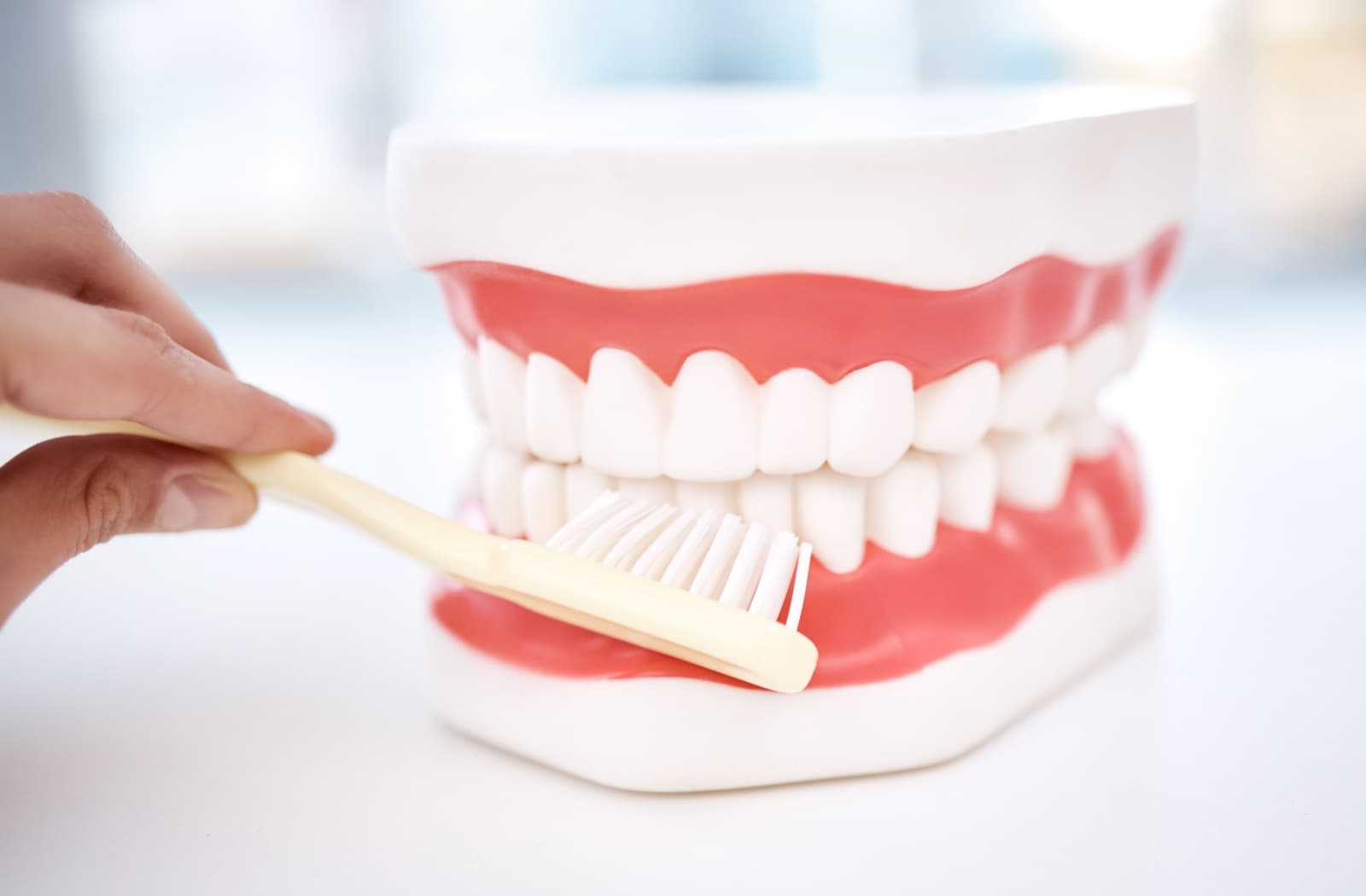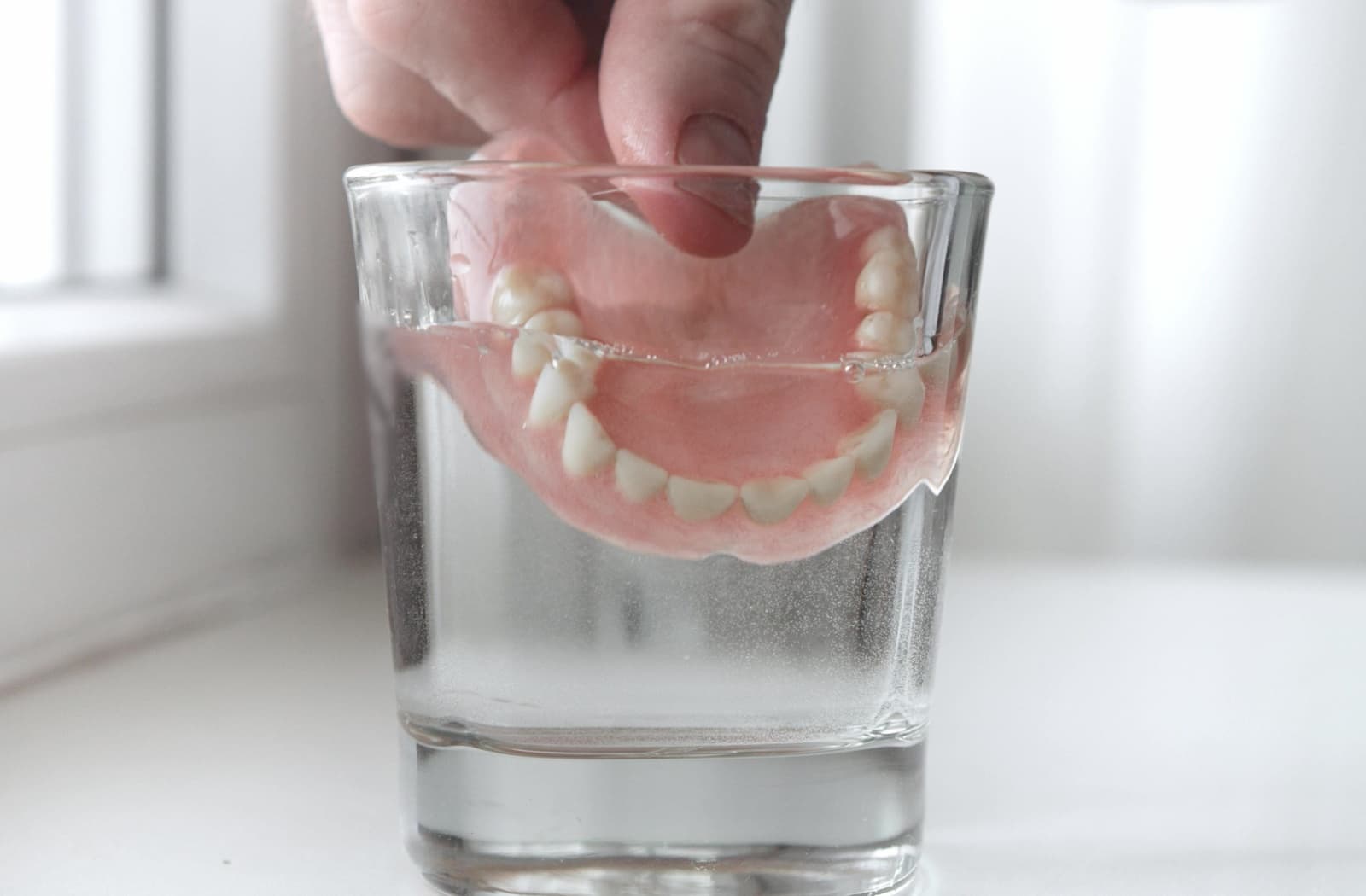How to Properly Clean Dentures

Dentures can improve your life—restoring not just the look of a natural smile, but also the ability to speak clearly and enjoy your favourite foods with confidence. Whether you’ve had them for years or are new to wearing dentures, one thing remains true: keeping them clean is essential to oral health and overall comfort. To maintain your dentures, proper cleaning involves rinsing them after meals, brushing them daily with a soft toothbrush and non-abrasive cleaner, and soaking them overnight in a denture-safe solution.
Why Denture Care Matters
Much like natural teeth, dentures can accumulate plaque, bacteria, and food particles. Not cleaning them properly can lead to bad breath, gum irritation, infections, and staining. Well-maintained dentures not only look better but last longer and feel more comfortable in your mouth.
Your gums and mouth tissue need time to rest. Removing dentures overnight and cleaning them regularly allows your oral tissues to stay healthy and helps prevent issues like sore spots or fungal infections.
Types of Dentures & What They Do
Understanding your type of denture can help guide how you clean and care for it. Dentures are custom-made to fit your mouth and may replace a few teeth or an entire arch. The 4 main types of dentures include:
1. Partial Dentures
These are used when you still have some of your natural teeth. Partial dentures attach with small metal clasps to surrounding teeth and can be taken out for cleaning. They help keep your other teeth from shifting out of place and restore proper chewing function.
2. Complete Dentures
When all teeth in an upper or lower arch are missing, complete dentures are used. These are typically held in place by suction or denture adhesive. If your teeth have recently been removed, your dentist might provide immediate dentures to wear while your gums heal.
3. Suction Dentures
Suction dentures are a type of complete lower denture designed to stay in place using natural suction, without the need for adhesive. They’re custom-fitted to your mouth and offer better stability and comfort than traditional dentures.
4. Immediate Dentures
Immediate dentures are placed right after your natural teeth are removed, so you don’t have to go without teeth while your gums heal. They may need to be adjusted or replaced as your mouth changes during healing.
5. Implant-Supported Dentures
These use dental implants—tiny titanium posts placed into your jawbone—to support your dentures. They offer excellent stability and are particularly helpful for those who struggle with slipping dentures.
No matter which type you have, regular cleaning and check-ups are key to extending the life of your denture and keeping your mouth healthy.
A Simple Daily Cleaning Routine
Creating a consistent routine for your dentures doesn’t have to be complicated. Here’s how to properly care for your removable dentures (partial or full):
1. Rinse After Meals
After eating, remove your dentures and gently rinse them with warm water to wash away food debris. This helps prevent staining and reduces the build-up of bacteria.
2. Brush Daily
Use a soft-bristled toothbrush and a non-abrasive denture cleaner or mild soap. Avoid regular toothpaste—it can be too harsh and may scratch your dentures. If you wear a partial denture, brush all surfaces gently, including any metal clasps.
3. Soak Overnight
While you sleep, soak your dentures in a denture cleaning solution. This keeps them moist (which helps them keep their shape) and helps remove stubborn bacteria and stains. If you prefer natural cleaning solutions, a mix of warm water and vinegar can be used, though avoid vinegar if your denture has metal components.
4. Clean Your Mouth Too
Use a soft toothbrush to gently clean your gums, tongue, and the roof of your mouth. This promotes circulation and helps reduce the risk of irritation or infection.
5. Handle with Care
Always handle dentures over a soft surface or a folded towel if dropped. Store them in clean, lukewarm water when not in use—never hot water, which can warp the material.

When to Replace Your Dentures
With proper care, most dentures last between 7 to 10 years. However, just like natural teeth, they undergo wear and tear. Your mouth also changes shape over time, affecting how well your dentures fit.
Watch for these signs that it may be time to replace your dentures:
- Visible cracks, chips, or other damage
- Changes in fit—slipping, discomfort, or pressure points
- Sore or irritated gums
- Difficulty chewing or speaking clearly
- Persistent odour or discolouration, even after cleaning
Your denturist or dentist will typically check your dentures during regular visits and can guide you when a reline, adjustment, or complete replacement is needed.
Tips for a Healthier, More Confident Smile
- Keep up with regular dental visits, even if you wear full dentures. Your dental team will check your oral tissues, screen for oral cancer, and ensure your dentures are still fitting properly.
- Avoid DIY denture repairs. Home fixes can cause more harm than good. If your dentures break or no longer fit well, leave adjustments to a professional.
- Take your dentures out at night. This lets your gums rest and reduces the risk of infection.
- Stay hydrated. A dry mouth can lead to discomfort and increased bacteria. Sip water throughout the day to support saliva production.
Your Denture Experts in St. Catharines
Caring for your dentures doesn’t have to be overwhelming—just a few simple steps a day can make all the difference in your comfort, health, and confidence. Whether you’re just starting your journey with dentures or are due for a replacement, Hayven Dentures in St. Catharines is here to help.
Our experienced team is dedicated to creating natural-looking, high-quality dentures and supporting you with education and compassionate care. If your dentures show signs of wear or you have questions about daily maintenance, book a consultation today and let’s keep your smile healthy and bright.